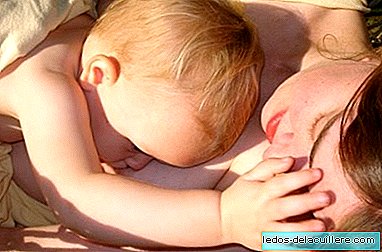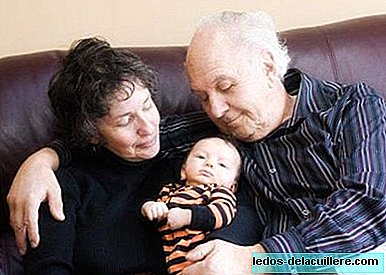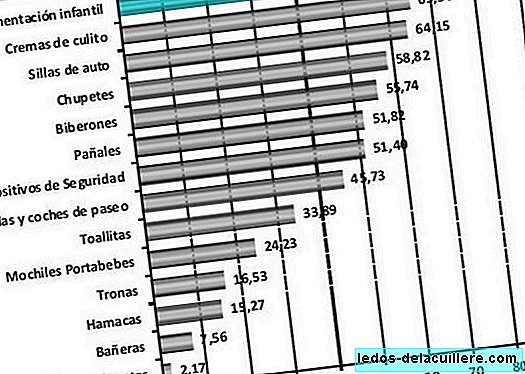
High capacities, high demand and high sensitivity: three concepts that surely you have heard on occasion or that you may even have identified in your child, both in isolation and associated with each other.
But, Why do they sometimes relate to each other and how can we differentiate them? Do all children have high abilities, high sensitivity or vice versa? And what is the relationship between high demand and high capacity? We clarify these and other questions in the following article.
Three different concepts but with certain similarities
Before analyzing the differences and similarities of these concepts, let's briefly review what each of them means and why sometimes they tend to overlap.

High capacities
As we have seen on other occasions, according to the definition of the Spanish Association of Pediatrics, children and adolescents with high or gifted abilities are those who show a high performance capacity in the intellectual, creative and / or artistic areas and excel in specific academic areas.
They are precocious children, with a capacity of learning superior to the average, a high level of creativity, high IQ and a wide and rich vocabulary with respect to the rest of children of their age.
Other features that characterize them are their early to reach development milestones, their privileged memory, their insatiable desire to learn, their extreme sensitivity and empathy, and an early interest in certain issues, which can sometimes generate a state of anxiety.
High sensitivity
The high sensitivity is a personality trait present in two out of ten people, regardless of sex. It is described as an inherited characteristic that affects the further development of the neuro-sensory system, according to the Spanish Association of People with High Sensitivity (APASE).
According to APASE, people with this personality trait have a finer and more developed neuro-sensory system than most people, which leads them to "feel" (in the broad context of the word) more intensely.
The children with high sensitivity perceive a lot of stimuli (visual, sensory, auditory ...) that can often overwhelm them and generate anxiety. They also show high emotionality and empathy, which leads them to constantly suffer from injustices and other people's pain.
High demand
As for babies and children in high demand are those who show a special energy, activity and attention. Children who continually seek contact, affection, arms and games, who do not calm themselves and who show a special sensitivity to stimuli.
The term "ata demand" was coined by pediatrician William Sears, also responsible for the term "parenting with attachment," with which he showed the entire world that it was possible to raise babies differently than usual.
When do these concepts come together?
There are children who can fulfill one, two or all three concepts, although generally at least two of them usually coincide. In addition, and as we have seen, there are common characteristics that are repeated in all three cases.
According to the disclosure website, High Capabilities Step by Step, high capacities and high sensitivity usually converge, because children who show gifting tend to feel different and more intense, so we would also talk about highly sensitive children.
For its part, the Association of High Skills and Talents reports that 90 percent of gifted children have high sensitivity, which is given especially by the high level of empathy they present.
In addition, there is another particularity and that is that some of the issues raised or that concern gifted children do not correspond to the doubts of their age (existence of God, life after death, hunger in the world ...). This asynchronous development can cause them anxiety and emotional imbalances by feeling unable to process the information and emotion that causes them.
For its part, the trainer and consultant in high demand, Mónica San Martín, alleges that the terms of "high demand" and "high capacities" also come together more and more frequently, so many high-demand babies end up showing clear indicators high capacity or giftedness over time.
And it is that one of the characteristics that parents of high-demand babies show is that they are nervous, restless and eager children to eat the world. And this hyperactivity is something that is sometimes also observed in gifted children, getting to confuse sometimes with children with ADHD.
The importance of attending to emotions
Addressing the emotions of babies and children is something very important and we must always do with love and respect. But in these cases it is much more, because both children with high capacity, as those with high demand and high sensitivity they present a common characteristic, and it is their "extreme sensitivity".
 Therefore, parents, teachers, educators, and in general anyone who plays a fundamental role in their upbringing and education, we must be properly informed, and know how to detect in time the needs they manifest.
Therefore, parents, teachers, educators, and in general anyone who plays a fundamental role in their upbringing and education, we must be properly informed, and know how to detect in time the needs they manifest.Mock or not understand your sensitivity, not understanding their degree of empathy, their desire for knowledge or their demands, can cause in them important emotional imbalances that affect them negatively.
Therefore, the correct emotional education of children since they are babies is fundamental, teaching them to interpret, understand and manage their emotions, and, above all, respecting and loving them in their individuality.












